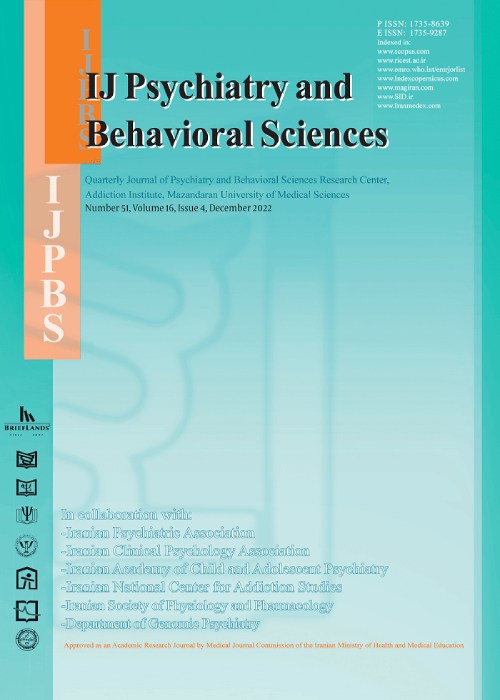The Effectiveness of Acceptance-based Emotion Regulation Group Therapy on Diabetes Control Scale in Patients with Type 2 Diabetes: A Simple Randomized Controlled Study
The prevalence of diabetes is on the rise, and the lack of regular self-care activities can exacerbate this disease. Therefore, finding effective and short-term treatments is needed for these patients.
The purpose of this study was to investigate the effectiveness of acceptance-based emotion regulation group therapy in controlling diabetes in patients with type 2 diabetes.
This experimental study included the three stages of pre-test, post-test, and six-month after follow-up, as well as a control group. The statistical sample consisted of 33 patients with type 2 diabetes referred to the Iranian Diabetes Association, of whom 16 patients were allocated to the intervention group and 17 to the control group. The study was conducted in Tehran in 2019 - 2020. Acceptance-based emotion regulation group therapy lasted 14 weeks, during which some aspects of acceptance and commitment therapy, dialectical therapy, and emotion-focused treatment were combined and provided to the patients. The questionnaires used were the Summary of Diabetes Self-care activities (SDSCA) and Diabetes Dependent Quality of Life scale. Also, a structured DSM-V clinical interview was performed, and glycosylated hemoglobin (HbA1c) was measured. To analyze the data, mixed design ANOVA was run in SPSS version 21.
The findings revealed that the mean difference between pre-test and post-test in the experimental group was significant for the variables of HbA1c, quality of life, and self-care while the mean difference between the post-test and follow-up was not significant for HbA1c (P = 0.17) and quality of life (P = 0.27), indicating the stability of the therapeutic effect after six months of the intervention. Based on the present findings, acceptance-based emotion regulation group therapy led to a decrease in HbA1c and an increase in self-care and quality of life in patients with type 2 diabetes.
Our results showed that acceptance-based emotion regulation group therapy improved self-care, quality of life, and HbA1c in type 2 diabetic patients, so it can be used as a complementary intervention along with medical treatments.
- حق عضویت دریافتی صرف حمایت از نشریات عضو و نگهداری، تکمیل و توسعه مگیران میشود.
- پرداخت حق اشتراک و دانلود مقالات اجازه بازنشر آن در سایر رسانههای چاپی و دیجیتال را به کاربر نمیدهد.


